What to know about a Crow as a pet
Crows are lifelong partners.
It is quite probable that a crow will pick you as a partner and friend if it lives with you. As a result, he will vigorously protect his claim to your business. The crow will use its powerful beak to assault your family and friends until he bonds with them and becomes accustomed to them if you have family or intend to have family over the next forty years.
They require space, care and attention but they are the most lovely birds. They are very loyal and will be your best friend and they are extremely intelligent. Trust me I’ve spent time with other birds and non of them are worth a damn
And not, crows are not bad. They are faithful. If you are selfish enough to change their natural behavior and fixate their affection on you, count on the consequences.
You absolutely can have a crow as a pet in the US. However, it can not be native to the US as the crows here are protected under a migratory bird treaty. You will need to buy a imported cow. They are very intelligent, able to minic words, and some species have iq’s as high as a 7 year old child.
pied crows for sale are medium-sized birds, measuring 46 to 50 cm in length, with a glossy black head and neck contrasting with white shoulders and lower breast. They have a larger bill, longer tail and wings, and longer legs compared to the European Carrion Crow.
They are highly intelligent and adaptable, known for their problem-solving abilities and use of tools. They are omnivorous, consuming a wide variety of food including insects, small reptiles, grains, and carrion.
Habitat and Distribution: Found in sub-Saharan Africa, they inhabit open areas like grasslands, savannahs, and mountainous regions, often near human settlements.
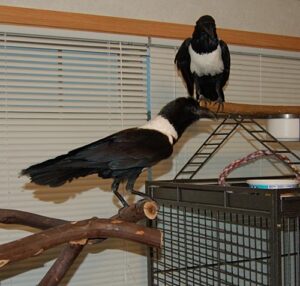
What to do before purchasing a pet crow
Legal Considerations: Ensure that purchasing exotic birds like African Pied Crows is legal in your area. Regulations vary by country and region, so it’s crucial to check local laws before making a purchase.
Care and Housing: These birds require spacious enclosures that mimic their natural habitat. They need a varied diet and regular interaction to maintain their mental health.
Cost: Prices can vary significantly based on factors like age, health, and location. Previous listings have shown prices ranging from $1,200 to over $5,000 for hand-raised birds.
Conservation Status: Crows are listed as Least Concern on the IUCN Red List, indicating they are not currently threatened with extinction1.
Life Span: In human care, they can live up to 40 years, requiring a long-term commitment from owners.
Where to Find African pied crow for sale
Specialized Bird Sellers: Look for reputable breeders or sellers who specialize in exotic birds. Ensure they provide health guarantees and comply with local regulations.
Online Marketplaces: Some online platforms may list African Pied Crows for sale, but be cautious and verify the seller’s legitimacy and compliance with laws.
Zoos and Conservation Centers: Sometimes, zoos or conservation centers may have programs for adopting or purchasing birds, but this is less common for private ownership.
Always prioritize the welfare of the birds and ensure that any purchase is made responsibly and legally.
What do African pied crow eats
a balanced and varied diet to stay healthy. Since they are omnivores, they eat a mix of proteins, fruits, vegetables, grains, and occasional treats. Here’s a breakdown of what to feed a crow in captivity:
1. Protein Sources (Essential for Growth & Health)
Cooked Meat – Chicken, turkey, lean beef (avoid excessive fat and seasoning)
Boiled Eggs – Excellent protein source
Insects & Mealworms – Live or dried mealworms, crickets, and earthworms
Fish – Small pieces of cooked fish (deboned)
Dog or Cat Food (Wet/Dry) – High-quality, grain-free brands
2. Fruits & Vegetables (For Vitamins & Minerals)
Fruits – Apples, bananas, berries, grapes, melons, and pears (avoid avocado—it’s toxic)
Vegetables – Peas, carrots, corn, cucumbers, leafy greens, bell peppers
Nuts & Seeds – Unsalted peanuts, sunflower seeds, walnuts, almonds
3. Grains & Carbohydrates (Energy Sources)
Cooked Rice or Pasta – Plain, unseasoned
Whole-Grain Bread – Occasionally as a treat
Oats & Cereal – Unsweetened and low-sodium options
4. Calcium & Supplements (For Bone Health)
Crushed Eggshells – Natural calcium source
Cuttlefish Bone – Common in bird diets for calcium
Bird Vitamins (If Needed) – Consult a vet for additional supplements
5. Treats & Enrichment Foods
Cheese (In Moderation) – Small amounts of unsalted cheese
Raw or Cooked Bones – To peck at for minerals
Honey or Peanut Butter (Occasionally) – As a special treat
Foods to Avoid (Toxic to Crows)
Avocado (Toxic to birds)
Chocolate (Contains theobromine, which is harmful)
Salty, Sugary, or Processed Foods (Unhealthy)
Alcohol & Caffeine (Highly toxic)
Large Seeds from Apples, Cherries, and Peaches (Contain cyanide)
A varied diet keeps captive crows healthy, active, and engaged. Providing foraging activities (hiding food, puzzles) also helps mimic their natural feeding behavior. Would you like recommendations on specific feeding schedules?
What are the main differences in behavior between African Pied Crows and European Carrion Crows
African Pied Crows and European Carrion Crows share many behavioral traits due to their similar ecological niches, but there are some notable differences:
Similarities
Intelligence and Adaptability: Both species are highly intelligent and adaptable, known for their problem-solving abilities and tool use.
Social Behavior: Both are social birds, often found in pairs or small groups, though they can gather in larger numbers when food is abundant.
Diet: Both are omnivorous, consuming a wide variety of food including insects, grains, and carrion.
Differences
Gregariousness: European Carrion Crows are more gregarious and often form larger flocks compared to African Pied Crows, which tend to be less social and rarely aggregate into huge flocks.
Migration Patterns: African Pied Crows are non-migratory, whereas European Carrion Crows may exhibit some migratory behavior depending on their location and climate.
Habitat Preferences: While both species can adapt to various environments, European Carrion Crows are found in a broader range of habitats across Europe and Asia, including forests and urban areas. African Pied Crows are more commonly associated with open areas like grasslands and savannahs.
Behavioral Responses: Carrion Crows have been observed using tools in more complex ways, such as using cars to crack nuts, which is not commonly reported for African Pied Crows.
Overall, while both species share many behavioral traits, their social behaviors and habitat preferences differ based on their geographical distributions and ecological contexts.

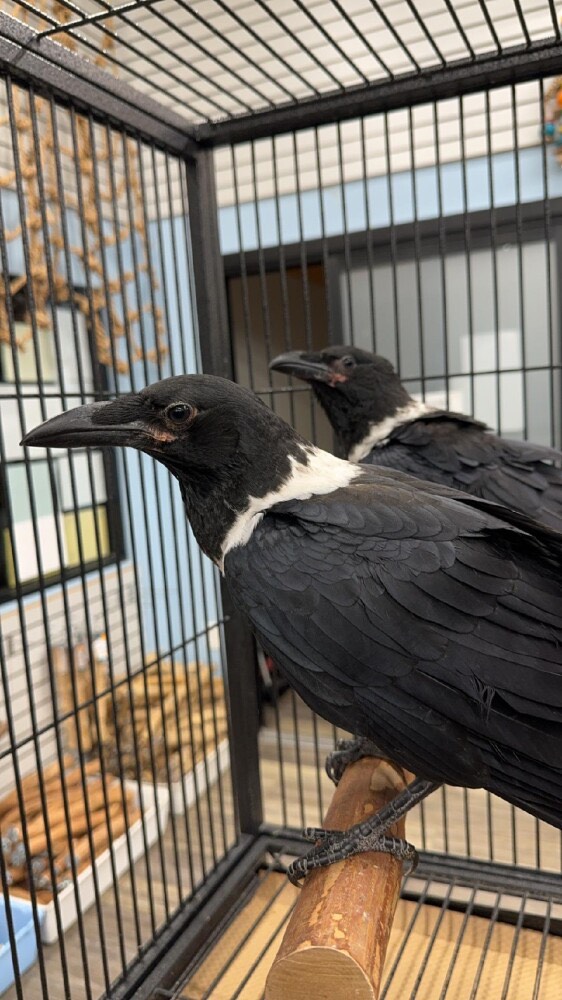
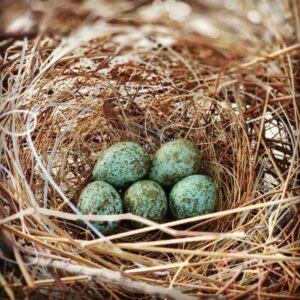

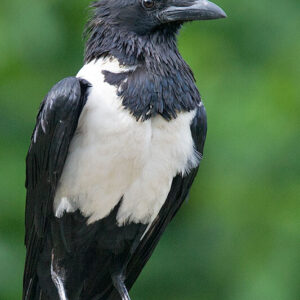
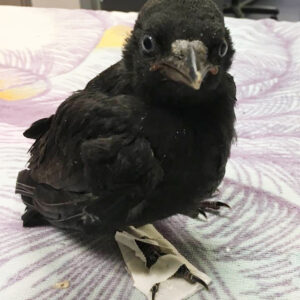
Reviews
There are no reviews yet.